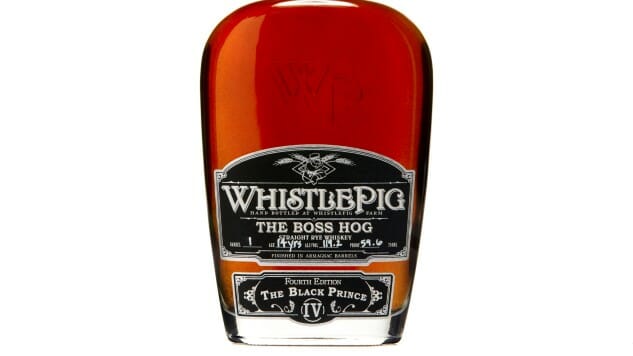WhistlePig Boss Hog IV: “The Black Prince”

There’s a certain price point at which the mere idea of reviewing a whiskey becomes sort of fanciful. A $25 bottle, sure. I can tell you what “good value” looks like and tastes like in a $15 bottle, or a $25 bottle, or a $50 bottle of bourbon or rye. There are “value markers” and no shortage of comparisons to make. There’s some ethereal kind of objectivity present—hard to grasp, but it’s there.
A $500 bottle of rye, though? That’s subjective by its very nature. What would the liquid inside have to be capable of, to be “worth” half a grand? At that point, each individual consumer’s monetary status is a bigger indicator of their perception of value than the whiskey in the bottle. Someone who makes $12 an hour at their part-time job is going to be hard-pressed to ever, under any circumstances, consider a $500 bottle of whiskey a “good value,” even if it makes their eyes roll back into their head with orgiastic delight.
So at this point, there’s only one way you can really review such a whiskey: Just talk about the liquid. So that’s what I’ll do.
WhistlePig’s “Boss Hog” releases represent the apex of the popular Vermont distillery’s program, both in prestige and price. They’re barrel-strength, overproof rye whiskeys, like everything else in the WhistlePig line, with the addition of extra age and strength. This fourth edition of Boss Hog, dubbed “The Black Prince,” is 14-year-old, 124 proof rye from MGP in Indiana, finished in French Armagnac barrels, which the distillery says makes it a first of its kind. Regardless, it echoes the distillery’s previous series of 12-year ryes that were finished in Madeira, Sauternes and port barrels.
-

-

-

-

-

-

-

-

-

-

-

-

-

-

-

-

-

-

-

-

-

-

-

-

-

-

-

-

-

-

-

-

-

-

-

-

-

-

-

-








































